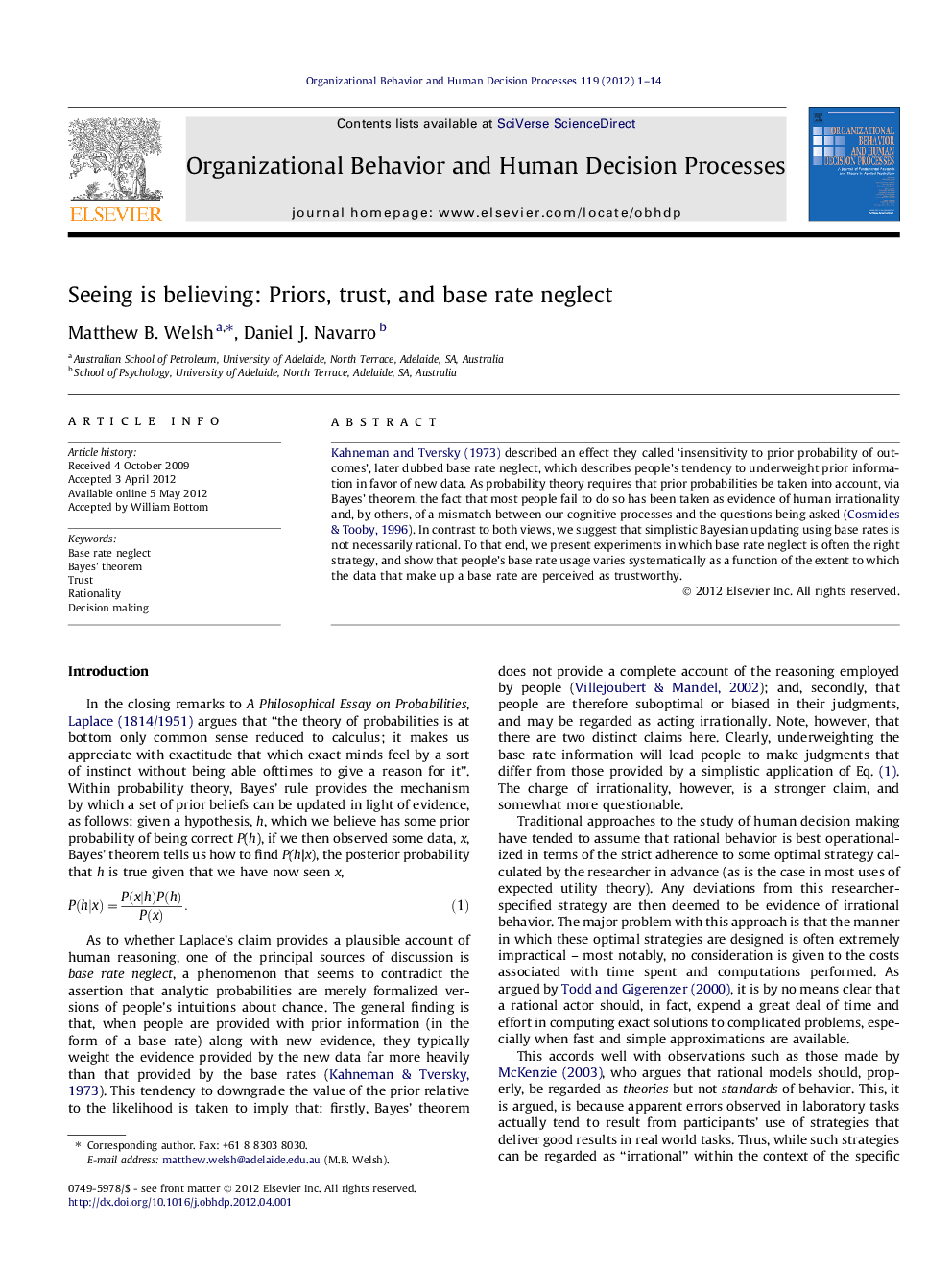| Article ID | Journal | Published Year | Pages | File Type |
|---|---|---|---|---|
| 888737 | Organizational Behavior and Human Decision Processes | 2012 | 14 Pages |
Kahneman and Tversky (1973) described an effect they called ‘insensitivity to prior probability of outcomes’, later dubbed base rate neglect, which describes people’s tendency to underweight prior information in favor of new data. As probability theory requires that prior probabilities be taken into account, via Bayes’ theorem, the fact that most people fail to do so has been taken as evidence of human irrationality and, by others, of a mismatch between our cognitive processes and the questions being asked (Cosmides & Tooby, 1996). In contrast to both views, we suggest that simplistic Bayesian updating using base rates is not necessarily rational. To that end, we present experiments in which base rate neglect is often the right strategy, and show that people’s base rate usage varies systematically as a function of the extent to which the data that make up a base rate are perceived as trustworthy.
► Is base rate neglect a rational strategy? ► Base rate neglect is altered by experimental manipulations of data trustworthiness. ► Modeling indicates that base rate neglect is too simple a concept. ► Base rates are just one aspect of a person’s prior data. ► Expecting people to use only the base rate as their prior for Bayesian updating is naive.
